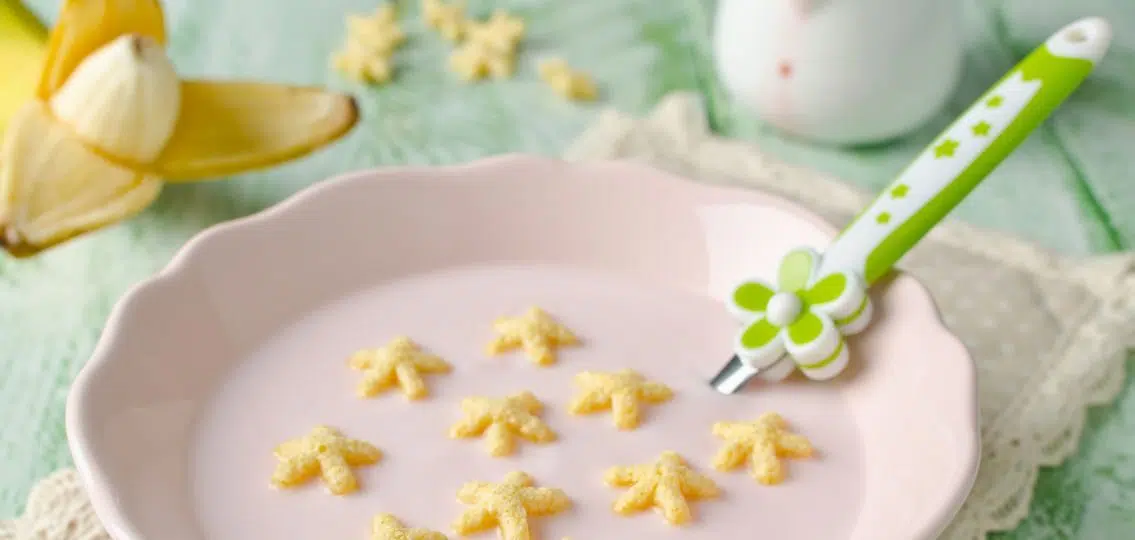My teenage daughter’s favorite spoon is the size of my pinkie. “MY ANGEL” is printed along the handle, engraved in a rustic font, and finished with stars. The spoon was a gift from my sister-in-law. She sent two of them—one for Eva, the other for her twin sister—and they arrived a few weeks after Eva was discharged from the hospital when she was thirteen months old.
For years, the spoon resided in the back of the silverware drawer. It was only during the pandemic, when Eva’s height shot up and she began wearing sports bras, that she brought it back into circulation, and I can’t help but wonder why.
Eva is thirteen years old now and every day she shows me glimpses of her adult self. She brushes her hair before school without encouragement and her legs seem to lengthen overnight. But there are also times when I ask about her science test or how she’s getting along with a friend and she’ll shrug or say fine, then she squirts detergent on a sponge to wash her toddler spoon—despite hating dishwashing—or she’ll use the spoon to eat soggy Rice Chex.
Eva loves that toddler spoon. I think it brings her comfort. When I see it, though, I’m reminded of the day I returned from the store to find my husband holding Eva in his arms, bending over her to breathe life into her tiny mouth because she was struggling to take sips of air and her face was tinged blue.
An ambulance brought us to the hospital where she was treated by a team of emergency room doctors and technicians. One of them cut her sleeper from her body. Another held a blue bag to her mouth and pressed it each time Eva needed to breathe. Watching the bag inflate and deflate, a wave of realization struck me so hard that I would have fallen over if my husband hadn’t tethered me against his body: my daughter’s life was as flimsy as a balloon.
The doctors in that emergency room informed us that Eva had suffered a status epilepticus, a life-threatening seizure.
The next ones she experienced were not as severe, but still frightening. Any place or behavior became a potential trigger: lifting Eva from her highchair, visiting the pediatrician, or not giving her the cookie she wanted, for example.
We visited neurologists in two states and a cardiologist searching for answers. None of them offered a clear diagnosis. Meanwhile, Eva’s seizures continued and we tried minimizing her risk of seizures at home.
My husband and I imposed a strict schedule to make sure Eva and her twin sister had plenty of rest and that they dined on high-protein snacks. The schedule made it easier for me to attune to Eva’s body rhythms. I hoped my diligence could prevent her seizures.
Early milestones were precious because I feared each one would be her last. When I first handed Eva that toddler spoon, she clamped it in her fist and used it to scoop anything from scrambled eggs to saltine crackers, delighting us both.
Naturally, as the years went on and she hit other developmental milestones, the spoon made its way to the bottom of the silverware drawer. My fears, however, persisted and made me vulnerable to Eva’s requests and demands. I understood her frustrations by the curl of her knuckle, the way she’d crane her neck to the side and open her mouth to scream, and the jerk-jerk-jerk of convulsions. So if she wanted to wear the same striped tunic three days in a row, I let her. If she selected the princess story we’d read the night before, I didn’t question it.
Back then, her physical health was all that mattered.
I didn’t worry that the scheduling, the demands of motherhood, and her medical condition were making me somehow emotionally pull away.
Now though, as time accelerates through her teenage years and Eva spends more and more of her day at school or in her bedroom with the door closed, all I want is for her to invite me inside. I want her to tell me about her day unbidden, share what it’s like to walk the halls of her new junior high, and what it feels like to exist in her skin.
I see how upset she is when friends are unkind, or she cannot solve a math problem, or her sister produces more pirouettes at dance class. She’s also troubled by the growing responsibilities she shoulders. Sometimes she tells me she does not like herself.
I don’t know how to manage these problems for her. I don’t always understand her current emotional needs. Now that she’s an adolescent, it’s difficult for me to grasp my changing role in keeping her well.
But then Eva picks her favorite spoon from the drawer and uses it to eat her soup, and I interpret it like it’s a signal. On some subconscious level, I think she knows how diligently I cared for her when she was younger and remembers the feeling of being precious and prized. That spoon is a nod to a past when I was highly attuned to her needs and wants. It still has a place in our silverware drawer. Neither one of us is quite ready to let go.




